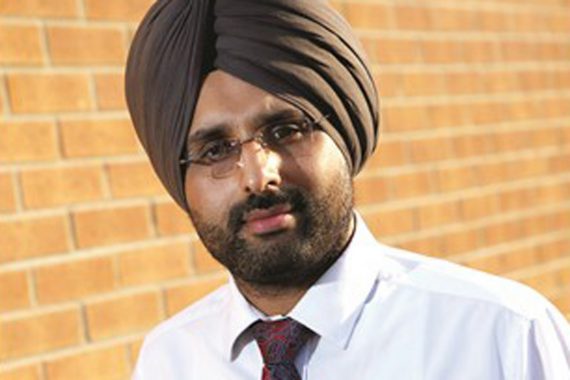We shouldn’t be deafened by the post-contract cheers

The recently-announced new contract deal brings in a lot of cheer and some very positive news.
To the credit of our negotiators and NHS England, this appears to be a much better offer than the draft specifications for primary care networks (PCNs), which, if implemented, would have been a complete disaster.
A slew of measures, such as full reimbursement for all PCN additional roles and a more mature approach to some of the specifications, are indeed very welcome. There are also golden handshakes for new partners; support for GP trainees, locums and practice nurses; and mentorship opportunities for those with experience.
All in all, there’s clear acknowledgment of the concerns raised by the profession in the feedback from the network draft specifications. It’s undeniable that more trust has been placed in the profession, which seems to be a vote of confidence in the trust between primary care and the population we serve.
This is a big step, though no one should be under any illusion that these new measures are enough. They’ll go a long way to support PCNs and practice engagement, but there’s still a lot of doubt as to whether they’ll actually alleviate the pressures on general practice. Though the agreement does reiterate that the main aim of the PCNs is to sustain practices and create capacity, PCNs are being bombarded with demands from all directions, with unrealistic expectations as a solution to all the problems we face.
We risk PCNs losing this purpose amidst all the other noise and the pressures. Hopefully, any strings attached will not be too heavy and restrictive.
Whilst there are proposals to support incoming GPs through induction, there’s little to support retention of the existing workforce, which continues to deliver high-quality services under extreme pressures. There’s no proposal to appreciate any experience in line with the seniority allowance – such a gesture would have been vital and hugely welcome.
PCNs can make or break general practice, and the systems, nationally and locally, must support them to deliver
A resolution to the pension issue is deeply amiss, and will have added significant, badly-needed capacity into the system.
In addition, there’s a worry that we don’t have the supply for many of the additional roles envisaged, as we’re already struggling to recruit for pharmacist roles at the pay scales proposed. Similarly, there are concerns around paramedics moving from already stretched ambulance services. It’s not really going to help anyone, and simply shift pressure points, if we just move healthcare professionals around the system.
As PCNs aren’t always legal entities in themselves, there are still some issues around employment. Some of these have been allayed in the contract deal, however, many PCNs rely on existing organisations, hospitals or community trusts to employ or help provide some of the additional roles, training, and governance. This comes at the risk of shifting a new resource to essentially fund or subsidise existing services, especially when relatively small PCNs deal with massive, established organisations, such as hospitals and community trusts. Hence, it’s going to be an uphill task to ensure the new roles are genuinely ‘additional’.
Additional roles and services, such as those covering first contact physiotherapy and social prescribing, are far better commissioned in collaboration by PCNs, so there’s a pool of staff that brings in more stability, flexibility and smooth running of these services. Their support structures can take time to establish, and where established already, must be nurtured.
The additional funding for care home beds is welcome, but the way PCNs are funded sadly doesn’t help deal with existing inequalities within the system. Areas of deprivation receive no more than those with less, other than the weighting applied, which just doesn’t go far enough in any meaningful way to tackle the inequalities, especially when PMS monies have essentially disappeared.
We also see notable challenges at local levels. As the CCGs undergo reconfiguration and mergers, paving the way for integrated care systems, there appears to be a mad rush for delegation of anything and everything to PCNs. In the process, this creates extreme pressures on nascent organisations with still-evolving structures, and, most importantly, evolving relationships to the newer ways of working.
As NHSE has demonstrated a more considered approach to the PCNs and allowed them space to breathe and evolve, local systems also must do the same. PCNs can make or break general practice, and the systems, nationally as well as locally, must support them to deliver.
Let’s not run before we can walk.
Dr Kamal Sidhu is a partner and trainer at Blackhall and Peterlee Practice and New Seaham Medical Group, chair at South Durham Health Community Interest Company, and vice-chair at County Durham and Darlington LMC. He writes in a personal capacity.









